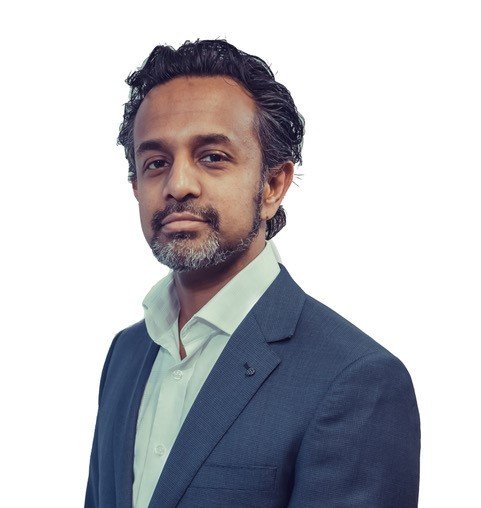The power of life-saving knowledge
When rural GP Dr Olufemi Onikola signed up for the ACEM Emergency Medicine Education and Training (EMET) program, he knew he’d get intensive training in procedures for doctors working in rural EDs – but he didn’t expect to need those life-saving skills so quickly.
That’s what happened after Dr Onikola attended ACEM’s EMET program in WA’s Wheatbelt region, where he lives and works.
On his way home after the EMET session, Dr Onikola passed a serious motor vehicle accident at the side of road. Using his new skills, Dr Onikola stabilised the patient so that he could be airlifted to a trauma centre for further treatment.
As the GP in the remote town of Dalwallinu, around 245 kilometres north of Perth, Dr Onikola knows the risks that isolation can pose when managing a medical emergency.
It’s why he commits to attending each EMET training session in his region.
EMET was established in 2011 as a joint initiative between ACEM and the Federal Government. It provides free, locally based, hands-on emergency medicine education and training to doctors, nurses, paramedics, allied health workers and other health professionals who work in regional, rural and remote hospitals and health services.
EMET delivers essential upskilling for the rural health workforce through 59 hubs working with 540 health services across the country. This program plays a pivotal role in giving these widespread communities access to emergency care services, for serious incidents and major traumas, that they otherwise would not have.
However, the Federal Government’s commitment to the program’s funding is set to expire at the end of this year. ACEM is seeking $13 million per annum to fund EMET beyond 2025.
The practical difference isolated health practitioners need
FACEM Dr Anand Senthi co-leads the EMET sessions in WA’s Wheatbelt, along with FACEM Dr Anna Varone.
Dr Onikola attended one of those sessions in December 2024, where he learned to recognise and treat tension pneumothorax.
‘On his way home after the EMET session, Dr Onikola attended a serious motor vehicle accident at the side of road,’ Dr Senthi said.
‘Using his fresh learnings, he was instrumentally involved in the recognition and treatment of a seriously injured patient with tension pneumothorax by needle decompression. This stabilised the patient such that he survived and was able to later be airlifted by primary retrieval service to the major trauma centre.’
Dr Senthi said the incident is an ‘EMET success story’ that highlights the life-saving value that the program brings to medical professionals – and their patients – in rural and remote regions across Australia.
Dr Onikola said this instance was just one example of the benefits he has gained as a remote GP from each EMET session in which he participates.
“‘I will always make time to attend EMET. It reinforces what you know already and makes you feel less alone in your decision-making.’”
‘Every time I do the EMET training, I am reminded of something I have forgotten, and I learn little tricks and tips that help me in my day-to-day emergency practice,’ he said. ‘I am always so grateful for the knowledge.’
Dr Onikola has been in his current role since 2020 and has firsthand experience of the need for additional support, via telephone, from an emergency medicine specialist.
‘Sometimes the time differences make it harder to access that help exactly when we need it, so having the confidence to put my own skills and knowledge into place because of what I have learned during an EMET session make an important difference,’ he said.
‘I will always make time to attend EMET. It reinforces what you know already and makes you feel less alone in your decision-making.’
Essential support for nursing staff
Clinical Nurse Manager Leigh Schalk works at Scott Memorial Hospital in Scone in regional New South Wales. It’s a setting she describes as ‘a small rural site without access to a large casual pool or agency to replace staff for study leave’.
‘EMET education is essential to support nursing and medical staff,’ Ms Schalk said.
To highlight the practical impact of EMET’s training and education support, she pointed to a recent EMET-led trauma workshop, Trauma on the Track.
“‘EMET education is essential to support nursing and medical staff.’”
‘Scone is the horse capital and, on a weekly basis, a horse-related trauma presents,’ Ms Schalk said.
When a patient recently walked into the ED after being kicked in the chest by a horse, she said an untrained staff member would likely not have picked up on this specific trauma as ‘the patient appeared stable’.
But her EMET training in trauma calls meant that the patient was quickly sent to Newcastle’s John Hunter Hospital, where they were diagnosed with grade-three liver laceration, pulmonary contusions and three fractured ribs.
‘If this patient had not been recognised, they may have gone home with a dreadful outcome,’ Ms Schalk said. ‘Recent snakebite education was also great and we had a snake bite of an eight-year-old the next day. Staff felt confident and managed well.’
If future EMET funding is not guaranteed, Ms Schalk said her concern is that ‘rural sites would have no access to ongoing education and support’.
‘This is a risk for staff and patients.’
EMET’s future is currently uncertain. ACEM's President-Elect Peter Allely is in Canberra today talking to decision makers about the crucial funding needed to continue enabling regional, rural and remote health care workers to access this potentially life-saving training. Visit ACEM’s ‘FundEMET’ to support our campaign.








